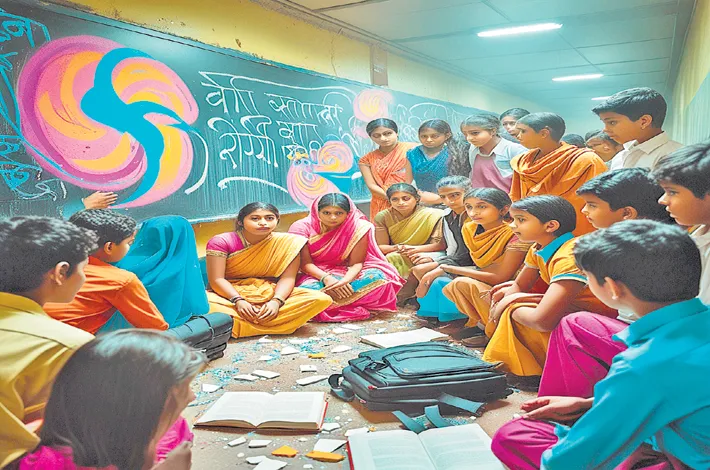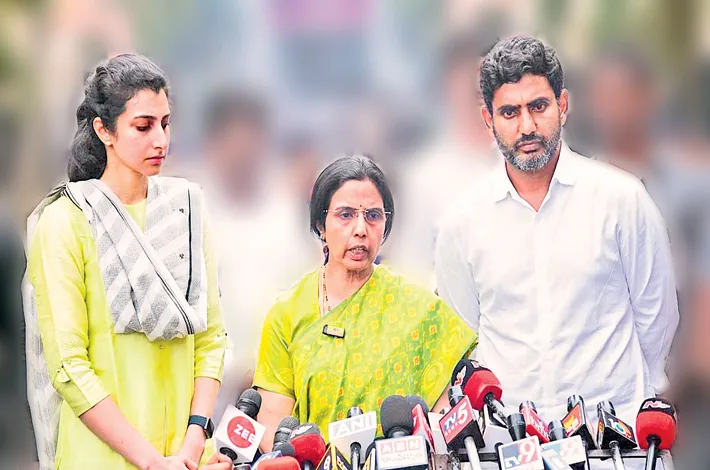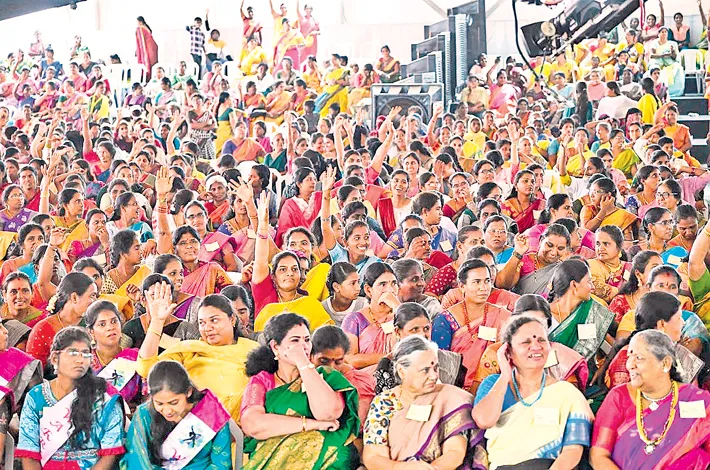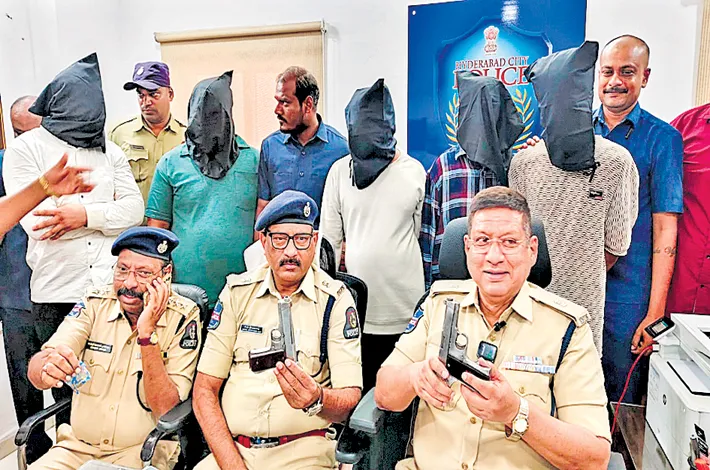The Need to Introduce Sex Education in Indian Schools
22-03-2025 12:00:00 AM

The benefits of sex education extend beyond individual well-being to societal progress. An informed youth is less likely to perpetuate gender stereotypes or fall prey to exploitation. It aligns with India’s commitments under the Sustainable Development Goals, particularly those related to health, education, and gender equality. Moreover, it prepares students to navigate adulthood with confidence, reducing the burden on healthcare systems and social services in the long run
India, a nation of rich cultural diversity and rapid modernization, stands at a critical juncture where traditional values often intersect with the demands of a globalized world. One such intersection is the pressing need to introduce comprehensive sex education in schools. While the topic remains a subject of debate due to cultural sensitivities, the urgency to equip young minds with knowledge about sexual health, relationships, and consent cannot be overstated. With rising cases of sexual abuse, teenage pregnancies, and misinformation fueled by unrestricted access to the internet, integrating sex education into the Indian school curriculum is not just a progressive step but a societal necessity.
At its core, sex education is about more than just biology—it encompasses understanding human development, relationships, gender equality, and personal safety. In India, however, discussions about sex remain largely taboo, confined to hushed conversations or avoided altogether. This silence leaves adolescents vulnerable to myths and misconceptions, often sourced from unreliable platforms like social media or peers. According to a 2022 survey by the National Family Health Survey (NFHS-5), only 20% of young women and 30% of young men aged 15-24 in India had comprehensive knowledge about reproductive health and contraception. This gap in awareness highlights a systemic failure to address the needs of a demographic that constitutes nearly 19% of the country’s population.
One of the most compelling arguments for sex education is its potential to combat sexual violence. India has witnessed alarming rates of crimes against women and children, with the National Crime Records Bureau (NCRB) reporting over 31,000 cases of rape in 2021 alone. Many of these incidents involve minors, underscoring the need for early education on consent, boundaries, and respect. A well-designed sex education curriculum can teach students to recognize inappropriate behavior, seek help, and foster empathy—values that could contribute to a safer society. For instance, programs in countries like the Netherlands, where sex education begins as early as primary school, have been linked to lower rates of sexual violence and healthier attitudes toward relationships.
Teenage pregnancy is another pressing concern that sex education could address. Despite legal restrictions and social stigma, India accounts for a significant share of global adolescent pregnancies. The lack of awareness about contraception and reproductive health often leads to unplanned pregnancies, forcing young girls to drop out of school and perpetuating cycles of poverty. Studies by the Guttmacher Institute reveal that comprehensive sex education reduces the likelihood of early pregnancies by empowering adolescents to make informed choices. In contrast, India’s current approach—limited to basic biology lessons in higher grades—fails to provide practical knowledge or address the emotional and social aspects of sexual health.
Critics of sex education in India often argue that it clashes with cultural values and may encourage promiscuity. This perspective, however, overlooks the reality that withholding information does not prevent curiosity or experimentation; it merely leaves young people ill-equipped to handle them responsibly. Evidence from global models, such as Sweden and Canada, shows that age-appropriate sex education does not increase sexual activity but promotes safer practices and delays sexual debut. In India, a tailored curriculum could respect cultural sensitivities by focusing on abstinence as an option while still providing essential knowledge about health and safety.
The digital age further amplifies the need for structured education. With smartphones in the hands of millions of Indian teens, exposure to explicit content is inevitable. A 2023 study by the Internet and Mobile Association of India found that over 60% of adolescents had encountered online material related to sex, often without context or guidance. Without formal education to counter this, young people risk internalizing distorted views on gender roles, consent, and relationships. Schools, as trusted institutions, can serve as a counterbalance by offering accurate, age-appropriate information and fostering critical thinking.
Implementing sex education in India would require a nuanced approach. It should begin with teacher training to ensure sensitivity and competence in handling the subject. The curriculum must be age-specific—starting with basic anatomy and safety for younger children and progressing to contraception and emotional well-being for older students. Parental involvement is equally crucial to bridge the gap between home and school, addressing concerns and building trust. Pilot programs in states like Kerala, which has taken steps toward inclusive education, could serve as a blueprint for nationwide adoption.
The benefits of sex education extend beyond individual well-being to societal progress. An informed youth is less likely to perpetuate gender stereotypes or fall prey to exploitation. It aligns with India’s commitments under the Sustainable Development Goals, particularly those related to health, education, and gender equality. Moreover, it prepares students to navigate adulthood with confidence, reducing the burden on healthcare systems and social services in the long run.
In conclusion, introducing sex education in Indian schools is a transformative step toward a healthier, safer, and more equitable society. While challenges like cultural resistance and logistical hurdles exist, they are not insurmountable. By prioritizing evidence-based education over silence, India can empower its youth to make responsible choices, break the cycle of ignorance, and build a future where knowledge replaces fear. The time to act is now—before another generation is left to fend for itself in the dark








